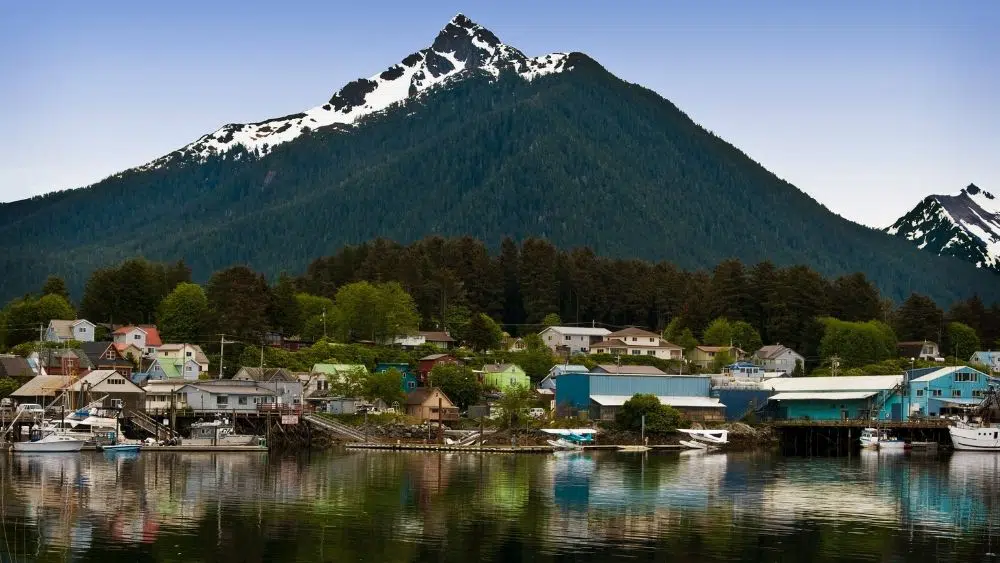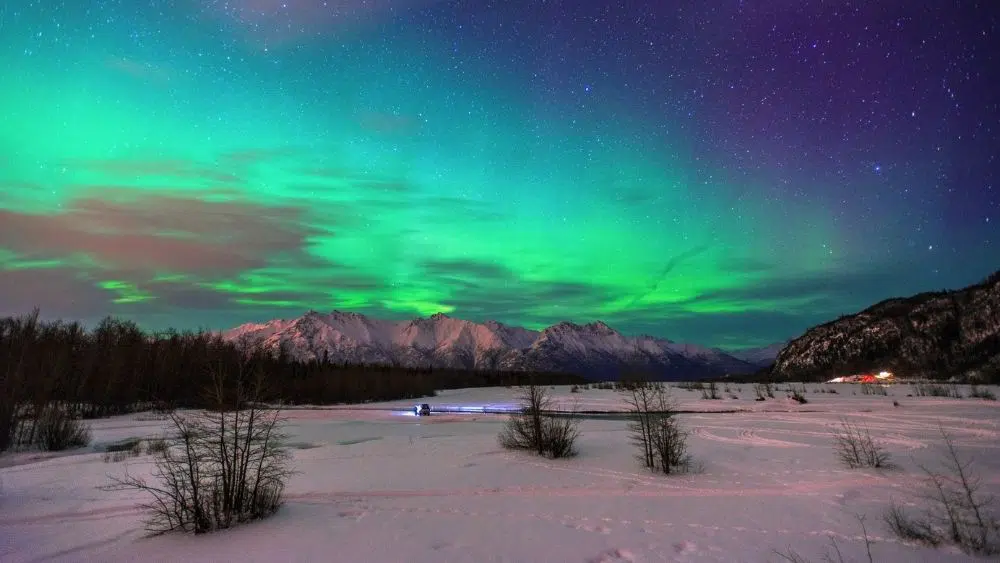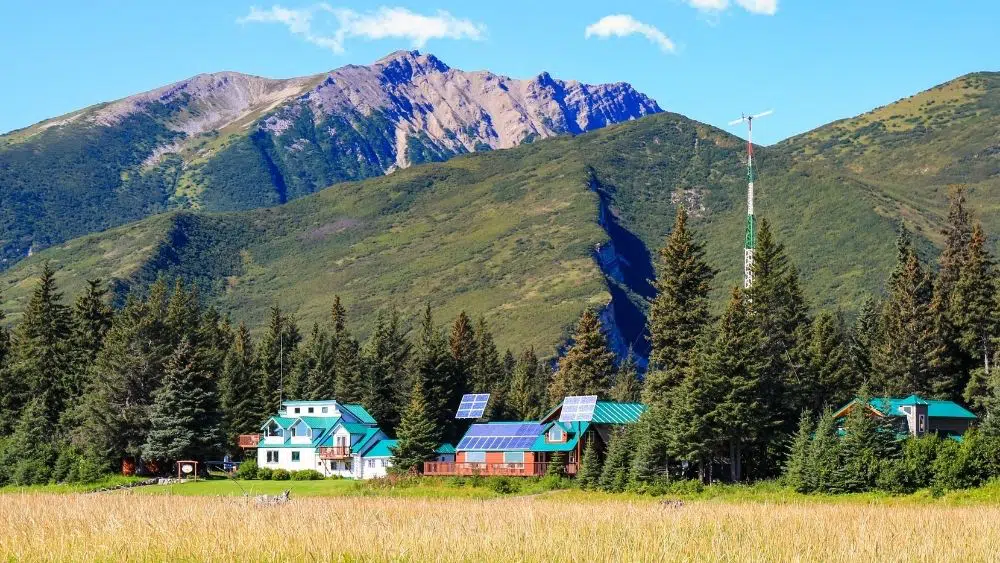
If you are a fan of cold weather, Alaska may be the perfect place to live. You’ve got stunning mountains, endless snow sports, and the Great Outdoors at your doorstep. Are you a homebuyer purchasing your dream home in the Last Frontier?
While saving up for a down payment is the pivotal step homebuyers whittle away on, you may be caught off guard by closing costs; these are additional hefty expenses you’ll need to pay before securing the keys to your new home. Closing costs make up all the fees you’re on the hook for paying on closing day when ownership of property is transferred from buyer to seller. Regardless of whether you’re moving across town or across the country, it takes a village to help you buy your home. There’s your lender, lawyer, appraiser, home inspector, and insurance provider, to name a few. Instead of paying each service provider one-by-one, these expenses are rolled together in a single bill. These could amount to two to five percent of your home’s purchase price, paid for alongside your down payment at closing, which makes for one expensive day of shopping!
So how much are closing costs in Alaska? Here’s our guide on how much you should be saving for closing costs in the Last Frontier, including a breakdown of these costs and how you can shave off thousands of dollars.
How Much are Closing Costs in Alaska?

Closing costs in Alaska are about $2,582 for a home priced at $261,169, according to a 2021 report by ClosingCorp, which provides research on the U.S. real estate industry. That price tag makes up 0.99 percent of the home’s price tag.
Alaska is right in the middle of the pack, ranking 26th out of 50 states. For comparison’s sake, nationally the average closing cost for a single-family home was $6,087 in 2021, according to ClosingCorp. In 2020, their data pegged closing costs in Alaska at $3,517 for a property priced at $300,079.
Homebuyers should expect to spend more, though. ClosingCorp’s estimates are based on a homebuyer applying a 20 percent down payment, eliminating the need for private mortgage insurance. Coming up with one-fifth of your home’s purchase price may not be viable for all homebuyers, especially first-timers, so you’ll need to factor in private mortgage insurance (PMI). PMI typically ranges from 0.25 percent to as high as 2.25 percent of your home loan, depending on the size of your down payment and credit score. There are also state-specific expenses, such as extra insurance policies on your home to protect against snowstorms and hailstorms.
Home values have also crept up in the Last Frontier: By August 2021, the average home price in Alaska was priced at $270,000. If homebuyers are aiming to earmark two to five percent of their home’s purchase price on closing costs, estimates would be around $5,400 and $13,500. But keep in mind, this figure will fluctuate greatly depending on the price of your home and the complexity of the home sale.
What’s Typically Included in Alaska Closing Costs?

Responsible homebuyers should familiarize themselves with their running tab of closing cost expenses from setting up your mortgage to buying all the necessary insurance policies. If you’re curious about how homebuyers end up with a bill in the thousands of dollars, here’s a closer look at what’s most often included.
Loan Origination Fees
Unless you have the cold hard cash to buy your home outright, the first stop you’ll make in the homebuying process is to your lender to secure a mortgage. Whether you’re working with a bank or a mortgage broker, the first of your closing cost expenses will be loan origination fees. In a nutshell, they’re what your lender will charge you to set up your loan, from the application to underwriting and processing your funding.
Homebuyers can estimate this cost at roughly 0.5 to one percent of your loan amount. With the average home in Alaska priced at $270,000, that’s about $1,350 to $2,700.
Credit Report Fee
Included in your loan application and underwriting is a thorough credit check to make sure you’re a responsible borrower. Before your lender qualifies you for a loan, they’ll pull your credit score to have an up-close look at how you’ve historically managed your existing debt.
Your lender will bill you for the cost of requesting your credit report. Log this expense at no more than $25, but if there’s more than one borrower on the mortgage application, double this cost.
Attorney Fees
States have individual quirks when it comes to closing procedures. In 20 states, it’s mandatory to have a real estate attorney representing your best interests throughout the home buying process – even if your home purchase is straightforward.
While this is the case in states such as Alabama, Maryland, New York, and Vermont, Alaskans are off the hook for this expense.
Still, you may still recruit the wisdom of a lawyer to help with your home purchase, especially if there are nuances where you need to exercise caution. Prime examples include if you’re buying property that has physical damages, the area is subject to adverse weather, or you’re buying from out-of-state.
Your lawyer can help with drafting and reviewing purchase agreements, negotiating, and finalizing the contract of sale, as well as certifying deeds and other legal documents.
The cost for hiring a real estate attorney in Alaska will vary, depending on how much heavy lifting you’re counting on them to do and how many hours you’ll require their services. Some lawyers will charge by the hour to, say, read over your contract to make sure it’s ironclad, but others may charge a flat fee or retainer.
Alaska Real Estate Transfer Tax
While Alaskans must deal with sub-zero temperatures and a high cost of living, homebuyers can take solace in this: the state has no real estate transfer taxes or documentary fees!
That’s right – all but 13 states across the country have “real estate transfer taxes” and like mandatory attorney fees, Alaskans are off the hook for this expense.
It boils down like this: real estate transfer taxes are paid to local and state governments when the seller transfers property to the buyer. It’s often a percentage of the home purchase price, with some states charging up as much as three or four percent. Then there’s the recording fees charged by local counties to update records.
Don’t worry, though. Neither of these fees are your problem if you’re a homebuyer in Alaska!
Property Taxes
While real estate transfer fees aren’t an issue for Alaskans, they aren’t exempt from one universal fee all homebuyers across the country need to budget for: property taxes.
On average, Alaskan homeowners pay about $2,422 in taxes for property worth a median value of $232,900. Counties collect, on average, 1.04 percent of your home’s value, making Alaska one of the highest property tax rate states in the country.
For comparison’s sake, New Jersey has some of the nation’s highest property taxes at 2.49 percent. On a $217,500 home, you’d be paying $5,419 annually.
Count on paying for this expense, prorated, at closing, and then annually, so watch out for due dates. While some states have a state-wide payment schedule, property tax due dates vary depending on regions in Alaska.
Escrow Fees
In Alaska, title companies manage all real estate escrows. This means that you’ll need to hire a title company or escrow company to guide you – and your seller – through the homebuying process. One of the key things your title company will do is set up a neutral third-party account to hold onto your funds. You won’t make any payments until your home purchase is finalized, both parties have met all their conditions on the home sale, and the ink is dry on the property transfer.
Your title company will also help you with the checklist of things you need to have completed by closing. On closing day, they’ll meet with you and your seller to sign off on the final bits of paperwork and hand over the keys.
In Alaska, this is a shared expense, split between the buyer and seller.
Title Search and Title Insurance
Your title company will conduct a title search on your potential new home, which is another make-or-break step in the homebuying process. Your lender needs a thorough title search by researching historical deed records to make sure the seller is, in fact, the owner of the property. This ensures that the home you’re buying has no outstanding ownership disputes or lawsuits in progress and you can own the land free and clear once it’s transferred to you.
This is an essential step whether you’re buying a new build or an existing home. It’ll cost you about $200 to $400 in Alaska, depending on the complexity of the research. Keep in mind, your title company will need to sift through records for the past few decades.
After the title search, you’ll need to safeguard your investment with title insurance. In this case, title insurance protects you in case something is overlooked during the initial search and there are other claims to your property. It comes with a price tag of roughly $3.50 for every $1,000 of your home’s purchase price.
Your lender will require you to purchase title search and title insurance before they fund your home loan.
Homeowner’s Insurance
Your lender will also require you to purchase homeowner’s insurance. This is called a “prepaid” expense, alongside property taxes, meaning it must be paid for in cash and can’t be rolled into your home financing.
While home insurance is mandatory, it will provide you with peace of mind. It covers any physical damage to your home caused by fire, wind, vandalism, or theft.
Mother Nature can wreak havoc on homes in Alaska. You may need to take out extra insurance to protect you financially against damages caused by natural disasters that aren’t covered in your standard policy. Be careful with timing: some insurance providers insist that you buy extended policies months before the winter season.
HOA Fees
Homeowners’ associations aren’t popular in Alaska, and only 20 percent of homeowners live in HOA communities. Thus, there’s a one-in-five chance that you’ll have to budget for HOA fees at closing.
HOA fees cover the cost of the various amenities provided by your neighborhood, such as clubhouses, pools, community parks, and fitness centers. They also account for keeping the community running with trash removal, security, and fire alarm systems. The more elaborate your HOA is, the more you should expect to pay.
If you’re moving into a new home within a new housing community, your builder will introduce you to the HOA and all of its amenities. If you’re buying an existing home within an HOA community, your seller will cover their understanding balances then transfer the membership to you.
Either way, when you’re house hunting make sure you ask about HOA fees upfront.
Surveying Fee
ClosingCorp says Florida and Texas are the only states in which land surveys are mandatory for single-family homes. But with acres of land and sprawling properties available in Alaska, your lender may insist you hire a property surveyor to check on the home’s boundaries. A surveyor could cost about $300 to $500, depending on your home’s location and the size of your property.
Appraisal and Home Inspection
Two other major checkpoints you’ll need to clear are the appraisal and home inspection. In both instances, your lender needs to know that they’re lending you money for a solid, worthy investment.
First off, your lender will send a third-party appraiser to scope out your potential buy and make sure it’s priced at the right value. If you default on your mortgage and your lender needs to foreclose on your home, they need to know they can sell the property and recoup their costs.
The appraiser will scan the home—size, features, condition, and how it stacks up to homes priced similarly in the community—to determine its fair market value.
After that, you’ll need to hire a home inspector who focuses on the health and safety of your potential new home. He or she will scan everything from the foundation to the roof to the water pipes and septic system, and everything in between.
You’ll want this professional’s insight: he or she could flag key issues that already exist or may surface in the coming years. With this intel, you could ask your seller to knock the price point down to factor or make repairs before finalizing the deal.
Whether it’s you, your lender, or your lawyer who insists on either of these steps, you’re responsible for the bill. Because your lender usually orders the appraisal, consult with them about how much it will cost.
Private Mortgage Insurance
For most homebuyers – especially first-timers – private mortgage insurance may be required. If you aren’t providing a 20 percent down payment, your lender will require you to buy PMI in Alaska. PMI allows borrowers to qualify for a conventional loan even if you put down only five to 19.99 percent of your mortgage.
To be clear, while you’re the one paying for the insurance, the coverage is for your lender; because you haven’t put down 20 percent, PMI protects your lender in case of loan default.
This cost isn’t included in the ClosingCorp tally of closing costs expenses, but PMI typically ranges from 0.25 percent to as high as 2.25 percent of your outstanding loan balance, depending on the size of your down payment and credit score.
How Can I Lower My Closing Costs in Alaska?

With a down payment, new furniture, and moving costs to worry about, the last thing you need is to factor in closing costs. If you’re looking to offset this expense, Alaskans have a list of key strategies worth checking out to save thousands of dollars. They include:
Closing Cost Assistance
Making use of homeownership assistance programs in Alaska is the most efficient way to make the biggest reduction in closing costs.
Start with the Alaska Housing Finance Corporation (AHFC), which provides an affordable housing loan program with down payment and closing cost assistance in the form of grants, deferred payment options, a forgivable loan, or any combination of the three. That means you could be receiving free cash or a zero percent interest loan to help you with closing costs.
Alaska Housing also has a specific Closing Cost Assistance loan, which provides up to four percent of your mortgage as a 30-year fixed interest rate second mortgage. Instead of coming up with the cash for your closing costs by Move-In Day, you can turn to this loan program.
Check out local homeownership assistance programs, too. From Anchorage to Fairbanks and into Southeast Alaska, programs providing up to $20,000 are readily available to eligible homebuyers.
Get Your Finances in Shape
Securing a low interest rate on your home loan could save you thousands of dollars over the lifetime of your mortgage. And the higher you get to the 20 percent down payment threshold, the less you’ll have to pay in private mortgage insurance.
With these two factors in mind, it’s worth your while to get your financial health in excellent shape before you shop for a home loan. Make sure your credit score is as high as possible, don’t skip any payments on your existing debts, and try to keep your debt-to-income ratio low before you make your case to lenders.
Comparison Shop
Whether you’re shopping for the best interest rate on your mortgage or you’re looking for a reputable title company and real estate attorney, savvy homebuyers take their time to comparison shop to obtain quotes from different providers.
Don’t let price be the ultimate decision-maker. Take stock of reviews from former clients and compare to competitors. After you do your homework, you’ll feel more comfortable knowing which providers should give the best deal.
Seller Concessions
Negotiation is always involved in the homebuying process, especially if you’re in a buyer’s market with sellers eager to sell.
Buyers can ask sellers to pay for some – or all – of their closing costs. If the home you’re eyeing is priced at $250,000, you may submit a full price offer with a caveat that your seller covers all $3,000 of your closing costs, for example. In other instances, you could ask your builder to pay your closing costs so you can, in turn, buy upgrades on a brand-new model home.
Keep in mind, buyers and sellers often split closing costs, where applicable, so there is wiggle room.
Negotiate Fees
When your lender sets up your loan, you’ll receive a Closing Disclosure form, outlining every service and fee you’ll pay on closing day. Don’t just file this paperwork away to worry about at a later date – do an inventory check so you understand and agree to the charges you’re incurring.
By closing day, the form should be updated. Your job is to check for discrepancies, an increase in fees, or new, surprise charges. Don’t be afraid to push back on any disparities.
Consider your relationship with your lender, too. Are you a repeat customer who uses multiple loan products? If you’ve been a responsible and loyal borrower, you could ask your lender to omit certain expenses. The lowest hanging fruit you can try for are fees that are often labeled as “junk fees,” such as rate lock fees, loan processing fees, and broker rebates.
You could also ask your lender to stagger these expenses, so they’re paid during the homebuying process in stages instead of all at once at closing.
Adding Closing Costs to Your Home Financing
While this option isn’t available to all homebuyers, some lenders allow you to roll your closing costs into your mortgage. You won’t have to pay a penny on closing day for your closing costs, but the tab will be added to your monthly mortgage payments instead.
The catch? You will pay interest on your closing costs as they’re tacked onto your home loan.
If this still sounds enticing, check with your lender to see if they can accommodate this arrangement. It’s worth noting, your lender can’t roll all closing costs into your home loan. Some costs, such as homeowner’s insurance and property taxes, must be paid upfront.
No-Closing-Cost Mortgages
Another solution you may be able to pitch to your lender is a “no-closing-cost” mortgage. In this scenario, your lender agrees to pay for part – or all – of your closing costs, but in turn, you pay a higher interest rate on your mortgage.
Run some calculations before you decide this is the best route for your bottom line. In the long run, this could cost you more money because of the bump in your interest rate.

Carmen Chai is an award-winning Canadian journalist who has lived and reported from major cities such as Vancouver, Toronto, London and Paris. For NewHomeSource, Carmen covers a variety of topics, including insurance, mortgages, and more.
 The 10 Best Places to Retire in South Dakota
The 10 Best Places to Retire in South Dakota